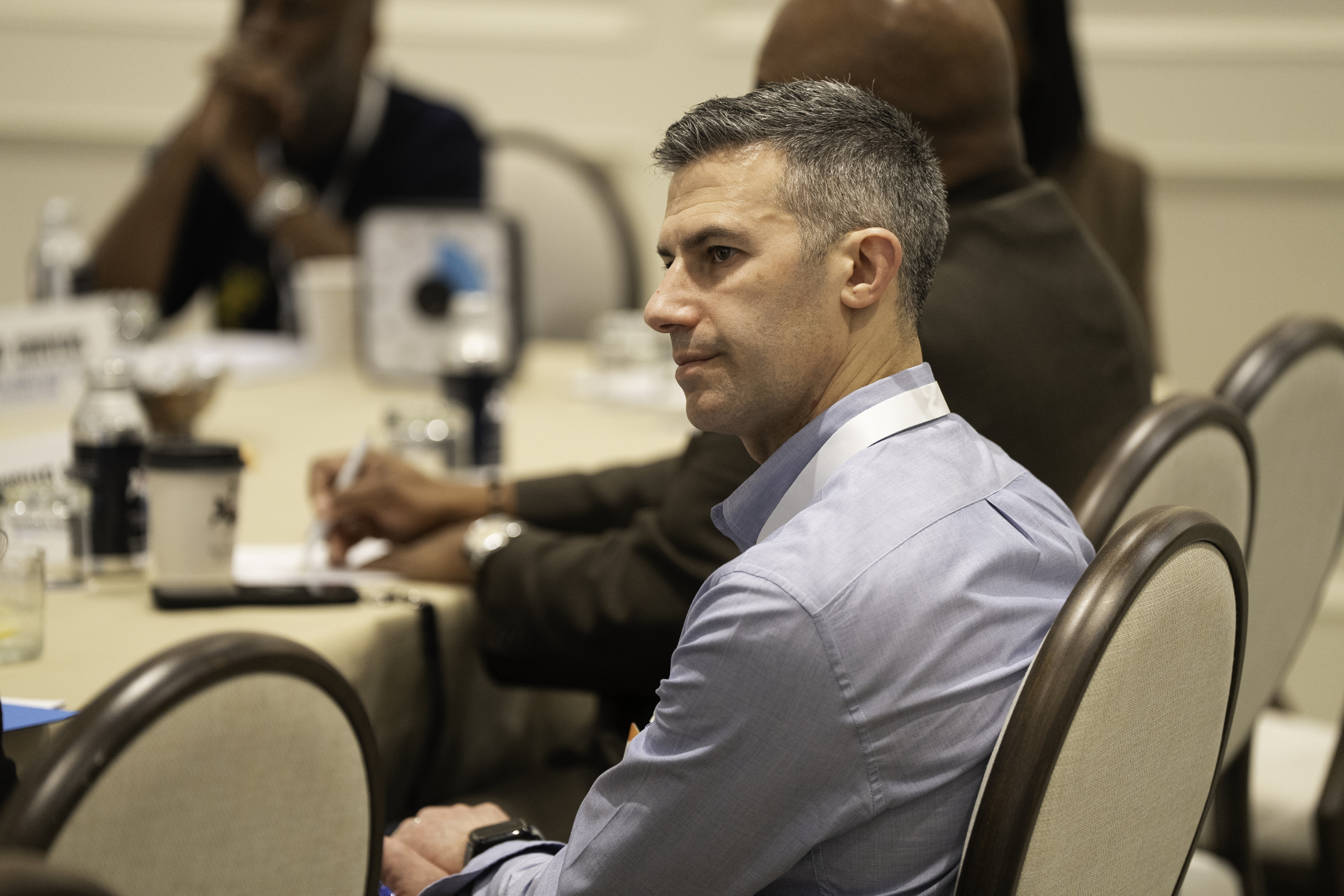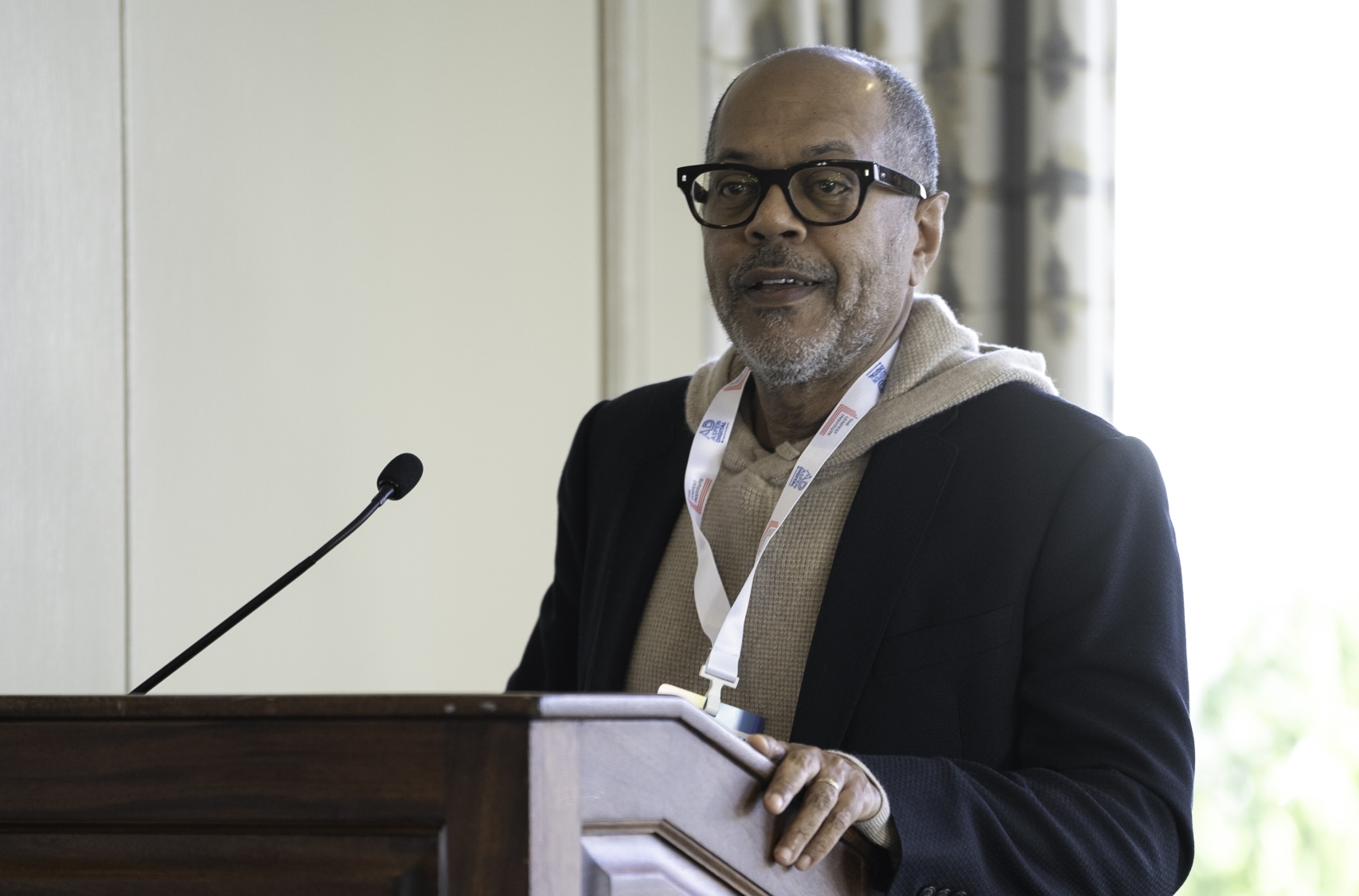Melissa Bell, Chicago Public Media CEO, on a panel at the 2025 Local News Summit.
This essay series was originally published in the Columbia Journalism Review.
In 2010, I was hired as a reporter at the Washington Post. Six months into the job, my editor offered me a new role: creating a blog as part of a wider effort to compete with the rise of new digital media sites.
But then something funny happened: as soon as I took the job, I was promptly notified by the Post union that I now had a “digital job” and, therefore, could no longer be a member. Overnight, I was no longer considered a “journalist.”
While the Post and its union have caught up to acknowledging that bloggers can, in fact, be journalists, the industry as a whole has persisted in its dismissive attitude toward digital-first content creators.
Content creators are hugely popular, and yet media companies are still moving too slowly to cultivate this talent within their organizations. We do that at our peril.
The newest crop of content creators have expanded from blogs to YouTube and TikTok and Instagram Reels. They produce their own podcasts and market their own merchandise, raise funds through Patreon or benefit from the largesse of social media platforms that want their own original content. They are hugely popular, and yet media companies are still moving too slowly to cultivate this talent within their organizations. We do that at our peril.
Let’s start with the business angle. Digital advertising never surpassed the revenue that sustained legacy media—TV, radio, and print—as companies like Facebook and Google snatched up the lion’s share of dollars. Those very same companies are now making it easier for content creators to publish on their sites as more and more dollars shift to the platforms: an IAB report in 2023 showed 44 percent of surveyed advertisers planned to move their ad budgets to content creators.
At the same time that we see a massive decline in trust in journalistic outlets, content creators have managed to form strong personal bonds with their audiences.
But it’s not just a question of money. At the same time that we see a massive decline in trust in journalistic outlets, content creators have managed to form strong personal bonds with their audiences. This isn’t totally new: the annual Reuters Institute for the Study of Journalism’s “Digital News Report,” a global survey on the state of media, has long shown that people tend to place the most trust in their local news anchors. People like to know people—whether they have a journalist’s diploma or not. This personal touch will likely become even more relevant as Google search results increasingly become AI-generated synopses of various news reports. Audiences may turn there for quick answers, but ultimately they are going to look for a real human connection to make sense of the world around them.
The best of these independent content creators have engaged directly and deeply with their audiences—talking to them in the comments, setting up Discord servers to interact with them, and so on. That conversation with their audience is a key component of their success—something all journalists should learn from.
If we fail to adapt our work to the public expectations today, we will lose out on the opportunity to put our work in front of those audiences.
It also means their audience can tell them when they make a mistake—a type of accountability that news organizations can learn from. The New York Times wasn’t wrong to say they no longer needed to employ an ombudsman, figuring Twitter could do the job instead, but they never took that very important second step: tasking somebody at the organization with responding to those complaints. Meanwhile, independent creators actively engage with comments, responding to people in real time, acknowledging their mistakes, and helping to explain how those missteps happened, deepening people’s trust in their work.
If we fail to adapt our work to the public expectations today, we will lose out on the opportunity to put our work in front of those audiences. Equally important, we will do a disservice to those independent creators, many of whom are uncovering stories that may fall through the cracks at larger media organizations. By failing to embrace these diligent creators in our news organizations, we also fail to provide them the type of editorial support, resources, and—of particular note now—legal support, all of which could limit their potential and make them shy away from riskier investigative work.
By failing to embrace these diligent creators in our news organizations, we also fail to provide them the type of editorial support, resources, and—of particular note now—legal support, all of which could limit their potential and make them shy away from riskier investigative work.
Second, by turning up our noses at independent content creators, we signal to online personalities that journalism should not be a priority, which means complex, nuanced dialogue loses out to gratuitous sensationalism. We already see presidential candidates forgoing legacy media and instead sitting down to interviews with podcasts like Call Her Daddy and The Joe Rogan Experience, which are far more aligned with the casual and unchallenging conversational tone of daytime television than the more rigorous and challenging back-and-forth of, say, 60 Minutes.
One of the outlets that did learn to experiment in this space, funnily enough, was my old home: the Washington Post, which now has a full team dedicated to its TikTok channel. It’s good to see they’ve learned from their mistakes. I’d caution the rest of us to do the same.
The views represented herein are those of the author(s) and do not necessarily reflect the views of the Aspen Institute, its programs, staff, volunteers, participants, or its trustees.
Dive Deeper
Read more news leaders’ essays.
We Must Embrace Next Gen News Consumers and Creators
Northwestern University Professor Jeremy Gilbert explains how newsrooms haven’t kept up with next gen news consumers’ expectations.
We Don’t Know Our Country Well Enough
Former LA Times Executive Editor Kevin Merida speaks on the need to build trust through robust local and community-centric reporting.



